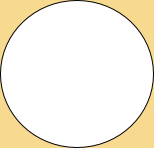

Turkey has displayed ‘fully authoritarian backsliding’ rather than membership progress, EU rapporteur says
26.02.2026
By SCF
Source:https://stockholmcf.org/turkey-
Nacho Sanchez Amor, the European Parliament’s Turkey rapporteur, said Wednesday that what Turkey has demonstrated rather than progress in its EU membership bid is “fully authoritarian backsliding,” warning that the appointment of former İstanbul chief public prosecutor Akın Gürlek as the new justice minister would test Ankara’s commitment to EU membership.
Presenting his draft annual report on Turkey’s EU accession, Amor said the assessment would not be “very optimistic” as Turkey has backslid rather than progressed on democratic standards and continues to fall short of its membership obligations.
Nacho Sánchez Amor
@NachoSAmor
I presented today my draft for the upcoming EP report on #Türkiye.
The text insists in clearly differentiating "membership" -
Amor sharply criticized the appointment of Gürlek as justice minister, describing him as “the spearhead of political repression,” particularly in cases targeting opposition figures such as İstanbul Mayor Ekrem İmamoğlu. He said the appointment would serve as “a test for Turkey” and a signal of whether the country really wants to join the EU.
Gürlek became a controversial figure for overseeing legal action against opposition politicians, primarily figures from the main opposition Republican People’s Party (CHP). The party accuses him of leading a politically motivated judicial crackdown, pointing to in particular to prosecutions of its senior officials.
İmamoğlu was detained on March 19, 2025, and arrested days later on corruption charges. Having been named his party’s presidential candidate for the 2028 election, his arrest was widely viewed by critics as targeting the biggest political rival of longtime President Recep Tayyip Erdoğan and sparked Turkey’s largest protests in a decade.
Amor also warned that the silence of the European Commission and the Council of the
EU on Turkey’s democratic decline is damaging the bloc’s credibility, saying the
EU is “losing pro-
He described the EU’s initial statement following İmamoğlu’s detention as “very weak” and stressed that promoting democracy is an obligation of all EU institutions. He said EU officials must raise concerns not only in private bilateral meetings but also publicly so that Turkish civil society can hear them.
The rapporteur also proposed building a more practical partnership while Turkey’s
EU accession talks remain effectively stalled, pointing to modernization of the customs
union, visa liberalization, security and defense cooperation and the presumption
of high-
EU parliamentarians will be able to submit amendments to the draft report until March
6. A revised version is expected to be presented by Amor to the European Parliament’s
Committee on Foreign Affairs on April 15-